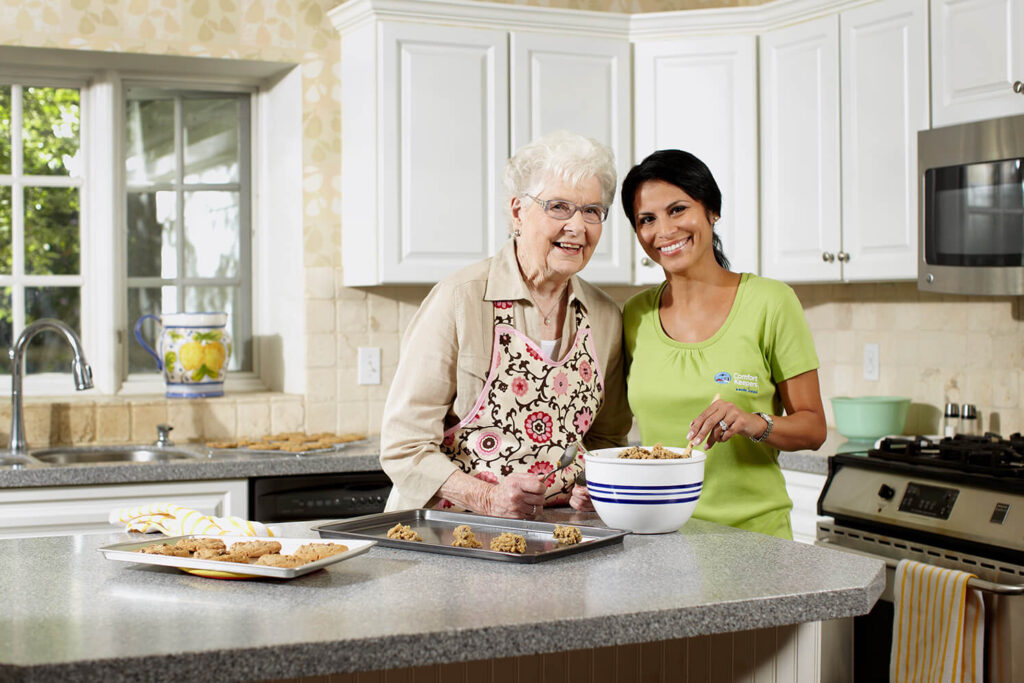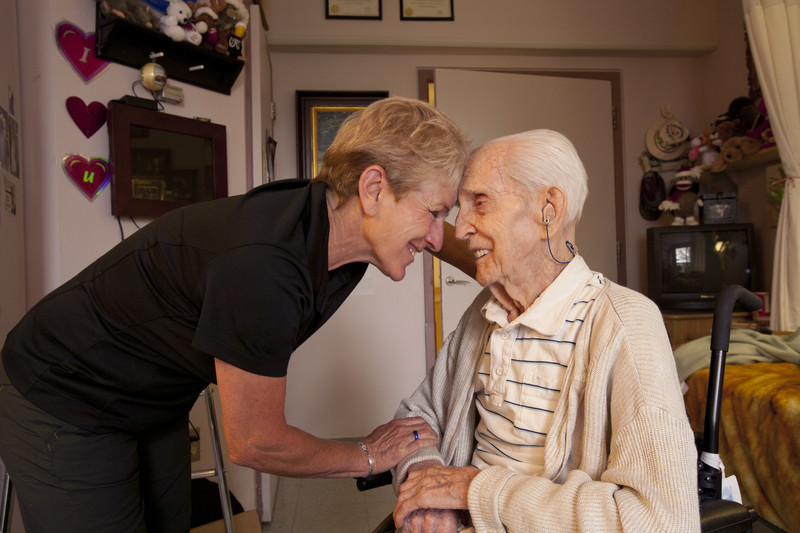Practical guide for dealing with dementia in the family: Ensure a dignified life for your loved one
Seniors and Alzheimers | November 17, 2025

Caring for someone with dementia, whether Alzheimer’s or another type, is a challenging process. Many families decide to keep their loved one at home rather than move them to a specialized facility. In Canada, many people with Alzheimer’s and other dementias live in their own homes.
In this post, we will teach you how to evaluate different points when considering home care for seniors with dementia and the support that the person with dementia and their caregiver need.
Understanding Dementia and Home Care
What is dementia?
Dementia is a broad term that encompasses a range of progressive diseases that affect memory, thinking, and behavior. Did you know that Alzheimer’s is the most common type of dementia? But there is also vascular dementia, frontotemporal dementia, and other less common types.
When is home care necessary for dementia?
Keeping your family member with dementia at home can be more comfortable for them, as it involves fewer changes to their routine and the environment in which they feel comfortable.
Home care makes this possible, preventing the person with dementia from having to move to a care facility.
However, providing home care for a loved one can be complex if a family member is not well prepared to take on the responsibility.
Things to keep in mind
It’s important to prioritize the quality of life of both people: the person with the illness and the caregiver.
Accidents in the home are commonplace, so safety is a very important consideration. Falls down stairs or in the shower are common. If the person requiring care suffers from nighttime wandering, safety measures must be increased, and medication errors must be avoided. To this end, it is recommended to use a pill organizer to keep track of each of the pills that must be taken daily.
Caregiving can be a physical and emotional burden for the family, which is why it is important to have a strong support network.
Preparing for Home Care: Practical Steps

a) Accept the diagnosis and get informed.
Coming to terms with the disease and all that it entails can be very difficult, but accepting it helps you take action to make the journey easier.
Recognize that dementia is progressive and will likely require increasing care. We recommend finding out about support groups for people suffering from the same disease. It is also important to plan for the future, as over time your loved one will likely require more and more care.
b) Adapting the home
Install grab bars and secure rugs.
Remove objects or structures that could cause falls and make it easier to find your way around (good lighting and clear hallways).
Labeling drawers and cabinets will be very helpful. Also, use visual cues and simplify the environment to reduce confusion.
It is important to install medical alert systems or monitoring services to prevent the risk of wandering.
c) Consider the care that will be needed
Depending on the stage of the disease, the help your loved one will need may vary. Everyday tasks such as bathing, eating, going to the bathroom, taking medication, or preparing meals can become challenging.
At Comfort Keepers Ottawa & Kanata, we have experience dealing with seniors with Alzheimer’s, and with our help, the process of adaptation and a dignified old age are guaranteed.
We can develop a personalized care plan based on the preferences, habits, and history of the senior with dementia.
d) Caregiver self-care
Caregiver burnout is real and a widely studied topic, and no one is exempt from experiencing it. Schedule breaks, ask for help, and rely on respite care services. Joining caregiver support groups to share experiences and resources is a good way to create a circle of support.
What are home care services for dementia like?
Types of home care
Home care: a caregiver comes to your home for a set period of time each day to perform previously agreed-upon household tasks, ensure that the patient takes their medication, and provide physical and psychological support.
Specialized home care programs for people with dementia: for example, the one we offer at Comfort Keepers Ottawa includes a home assessment, a personalized plan, and a trained home care aide who will assist with tasks such as meal preparation, personal hygiene, and transportation.
Home care for dementia can allow your loved one to live safely, comfortably, and meaningfully in their own home, which is often the preferred option. With careful planning, the right supports, and a clear understanding of changing needs, home care can be a viable option for many families. At Comfort Keepers Ottawa & Kanata, we personally ensure that neither you nor your family feels alone on this journey.
Individualized Home Care Options
Long-Term Home Care, 24 Hour Home Care & Short Term Care Options Customized for You







